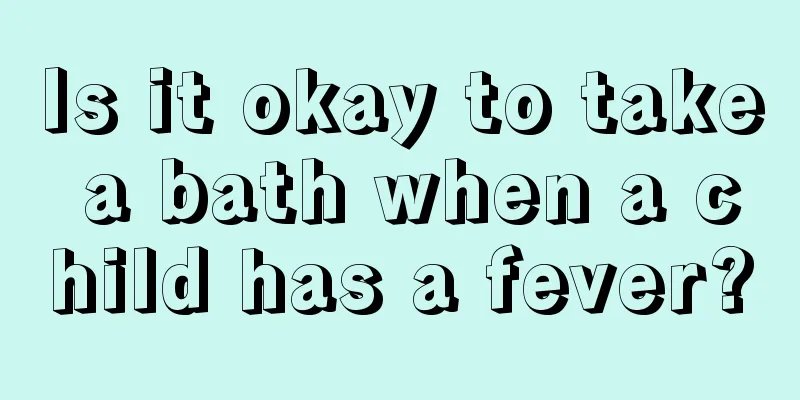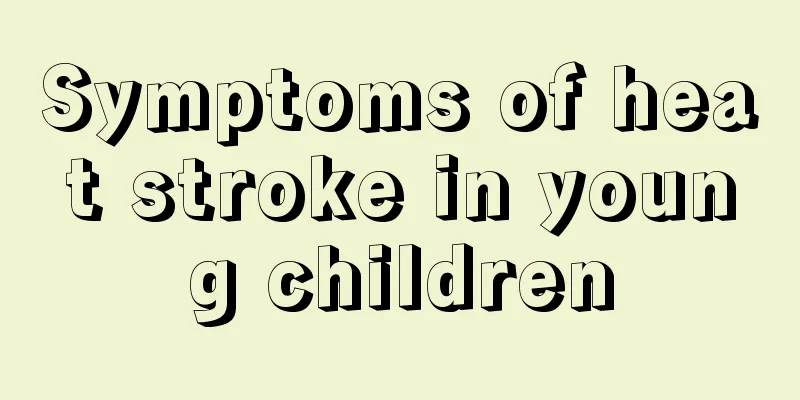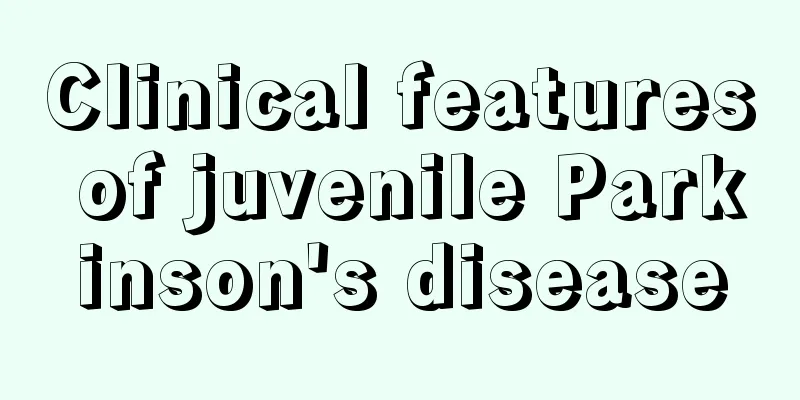Child foaming at the mouth while sleeping

|
Children foaming at the mouth while sleeping can be serious or minor. If the child's salivary glands are immature and cause excessive saliva secretion, there is no need to worry. This symptom will disappear after the child has fully developed. However, if the foaming at the mouth is caused by diseases such as pediatric pneumonia, parents need to take their children to the hospital for active diagnosis and treatment. Below we will introduce in detail the reasons why children foam at the mouth and how to deal with it. 1. Normal saliva secretionThe baby's salivary glands are immature and the saliva secretion is small, but it will gradually increase later. With the secretion of saliva, the baby's oral movements become more and more frequent, such as sticking out the tongue, blowing bubbles and drooling. These are normal physiological phenomena and will disappear on their own as the baby grows older and his swallowing function improves. 2. Causes of pneumonia in children Another reason is the pathological phenomenon caused by pneumonia in children. When infants suffer from pneumonia, respiratory symptoms are often atypical. Foam at the mouth is only one of the manifestations of pneumonia in infants. In addition to this, they may also refuse milk, choke on milk, and generally be in poor condition. If this is the case, you should go to the hospital in time to avoid delays.
Pediatric pneumonia is a common disease among infants and young children. It is more common in winter and spring in northern my country and is a common cause of death in infants and young children. Pneumonia is an inflammation of the lungs caused by infection with pathogens, inhalation of amniotic fluid and oils, and allergic reactions. The main clinical manifestations are fever, cough, shortness of breath, difficulty breathing, and lung rales. Children should adopt comprehensive treatment to improve ventilation function, effectively control inflammation and avoid the occurrence of complications.
Keep the air circulating in the ward, maintain the room temperature at 20℃ and the humidity at around 60%, provide easily digestible food, and turn the patient over and pat his back frequently. 2. Give antibiotics Antibiotics should be selected according to the following principles: ① Clinical and laboratory data should be targeted at possible pathogens. ② Select antibiotics to which the pathogen is sensitive. ③The severity of the disease. If it is mycoplasma pneumonia, macrolide drugs can be used. Antiviral drugs such as ribavirin or acyclovir can be used for viral pneumonia. 3. Symptomatic treatment If there are signs of hypoxia, oxygen can be given. You can take expectorants orally. If the sputum is thick and difficult to cough up, nebulization therapy can be used. |
<<: Massage techniques for nourishing the spleen and stomach
>>: The child foams at the mouth and snores while sleeping
Recommend
Why are there bloodshot eyes in babies and how to solve it
Every baby is the most precious thing to parents,...
Why does my child keep turning over when sleeping at night?
Parents all hope that their babies can have a goo...
Why do babies cry when they wake up?
In the hot summer, it seems that you can hear bab...
What happens when a child becomes dizzy? What should I do?
Children feel dizzy because of insufficient blood...
Urticaria on the child
There is no doubt that urticaria is a common skin...
What to do if your baby coughs in the morning
The baby started coughing after waking up. It was...
Why does my baby's urine smell so bad?
Many people say that when babies are young and ar...
Eight measures to prevent children's spring diseases
Spring is the season when young children are most...
What causes breathlessness in babies?
The normal breathing rate of a newborn baby is 40...
How to solve baby eczema
Since the baby's body is just beginning to de...
How to quickly get rid of phlegm in children
Many children have some phlegm in their throats w...
How to deal with children's habitual dislocation in an emergency
The harm of habitual dislocation in children is r...
What should I do if my child has allergic rhinitis?
Allergic rhinitis is a common disease in daily li...
What effect does a child's fever of 40 degrees have on the brain?
Some babies have a high fever due to improper car...
What are the precautions for preoperative examination of pediatric hernia?
If your child has pediatric hernia, most parents ...









